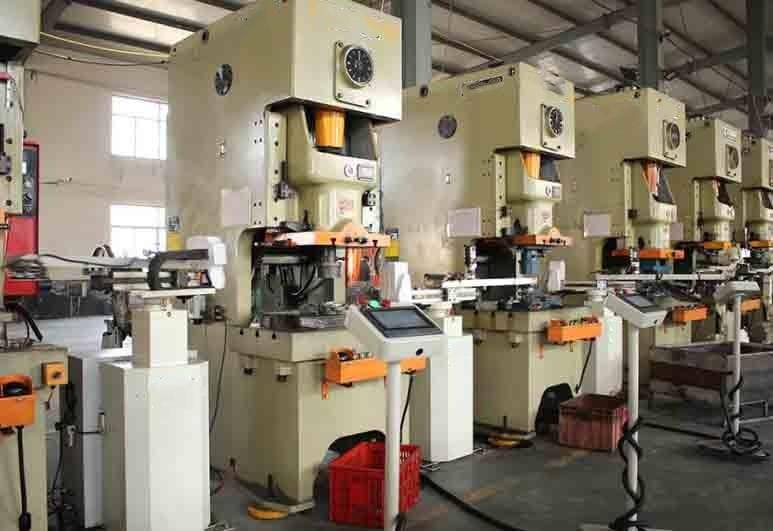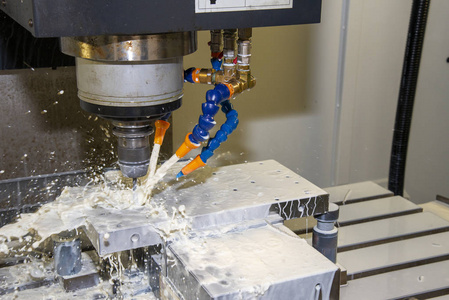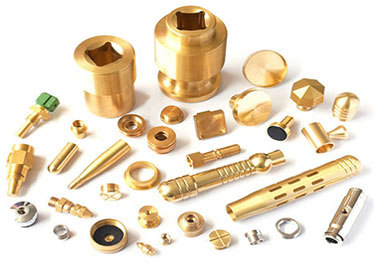Fasteners, for example, can be made in a variety of techniques, including metal stamping, CNC machining, and others. Before selecting on CNC machining or stamping, several things should be considered for manufacturing fasteners. Cost, production speed, processing materials, and so on.
Introduction of Metal Stamping
Stamping machinery
Metal stamping is the process of deforming or breaking stainless steel, iron, aluminum, copper, and other plates and other materials with punches and dies to obtain a specific shape and size. It entails stretching and blanking the metal plate in two or three dimensions. Perforation and other operations can also be used in the metal stamping process.

The following glossary defines common technical words used in metal stamping parts.
1. Deep drawing: A stamping process that converts raw steel or process parts into hollow parts or changes the shape and size of hollow parts. The flow of material outside the bottom of the punch into the die mostly forms the hollow part during deep drawing.
2. Trimming: A stamping procedure in which the forming process's edge is trimmed with a metal stamping die to have a specific diameter, height, or shape.
3. Punching: A punching technique that separates waste from the material or process piece along the closed contour and creates the desired hole in the material or workpiece.
4. Flanging: A stamping procedure that turns the material into a short side that stands on the side of the contour curve.
5. Flipping hole: A stamping procedure in which the material is transformed into a side flange around the inner hole's circle.
6.Blanking is a stamping technique used to separate materials along a closed outline. The separated material becomes a workpiece or process piece, most of which are flat.
7. Shaping: a stamping technique that uses material flow to adjust the shape and size of process parts in a small amount to assure workpiece precision.
When compared to CNC machining, stamping is a relatively inexpensive and quick method of production. Metal stamping is the ideal choice when speed is the most important factor. CNC machining, on the other hand, is more advantageous when complicated or high-precision forms are required.

Introduction of CNC Machining
CNC machining is a method of machining that employs digital data to control the displacement of parts and equipment. It is appropriate for a variety of parts, small batches, complex shapes, and high precision.

Axis motion driven by a spindle is included in CNC machine tools. A device may contain many spindles that receive computer program instructions to direct each spindle to the appropriate geometry.
CNC machining can provide
High tolerance precision.
Excellent surface polish and bespoke treatments are available.
Even with huge production, repeatability is important.

What Factors Should Be Considered Prior to Choosing CNC Machining or Stamping?
Processing Volume
Metal stamping is suited for high-volume production, whereas CNC machining is ideal for low-volume production.

Price
CNC machining is expensive, whereas stamping is quite inexpensive.
Capacity for Production
Metal stamping provides a better production capacity, faster speed, and a broader application than CNC machining. While it takes time to prepare a punch for production, when properly set up, it can run efficiently and effectively.
Production Speed
Metal stamping is the most efficient method of producing metal shapes. When the production line is working normally, it produces at a high rate. However, metal stamping cannot produce the complicated, high-precision pieces that CNC machining can. Stamped items may require extra processing before usage in order to meet greater precision requirements.
Manufacturing Precision
CNC machining offers great precision, and it serves a variety of manufacturing businesses since its technology is dependable and efficient. CNC machining is the preferred method for advanced components requiring tight tolerances and high.
